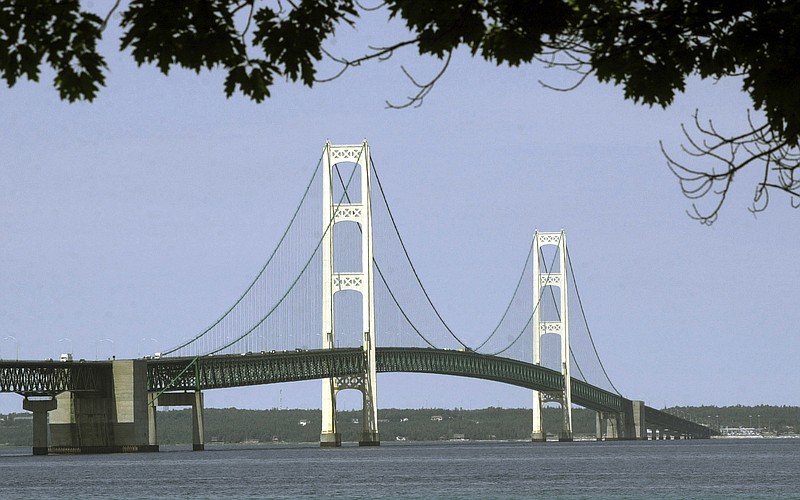TRAVERSE CITY, Mich. -- Enbridge said Tuesday that it would defy Michigan's demand to shut down an oil pipeline that runs through a channel linking two of the Great Lakes, contending that Gov. Gretchen Whitmer's decision was based on bad information and political posturing.
The Democratic governor in November moved to revoke a 1953 state easement that allowed part of the Canadian company's Line 5 to be placed along the bottom of the Straits of Mackinac. Saying Enbridge had repeatedly violated the terms and put the lakes at risk, Whitmer gave the company 180 days -- until May 12 -- to turn off the flow.
Enbridge filed a federal lawsuit challenging the order shortly after it was issued. Vern Yu, president for liquids pipelines, gave a point-by-point-response to the state's termination notice in a letter Tuesday and said it wouldn't close Line 5.
"Our dual pipelines in the straits are safe, fit for service and in full compliance with the federal safety standards that govern them," Yu said.
Mike Koby -- vice president of U.S. operations for the Calgary, Alberta, company -- said Whitmer had overstepped her authority. Enbridge has "no intention of shutting down the pipelines based on these unspecified allegations," Koby said in an interview.
Dan Eichinger, director of the state Department of Natural Resources, described the letter as "Enbridge's attempt to power-wash the company's long history of violating the terms of the 1953 easement, and their current non-compliance."
"Enbridge cannot unilaterally decide when laws and binding agreements apply and when they do not," Eichinger said. "We stand behind our efforts to protect the Great Lakes, and we stand behind the substance of the November 2020 revocation and termination of the Easement."
Line 5 is part of Enbridge's Lakehead network, which carries oil and liquids used in propane from western Canada to refineries in the U.S. and Ontario. The pipeline moves about 23 million gallons daily between Superior, Wis., and Sarnia, Ontario, traversing parts of northern Michigan and Wisconsin.
The underwater section beneath the Straits of Mackinac, which connects Lake Huron and Lake Michigan, is divided into two pipes that Enbridge says are in good shape and have never leaked.
Whitmer, however, agrees with environmentalists, American Indian tribes and other critics who contend they're vulnerable to a catastrophic spill.
Enbridge reached an agreement with then-Michigan Gov. Rick Snyder, a Republican, in 2018 to replace the underwater portion with a new pipe that would be housed in a tunnel to be drilled beneath the straits.
Whitmer's order said granting the easement in a busy shipping lane vulnerable to anchor strikes was a mistake and Enbridge had made things worse, repeatedly violating a requirement that the pipelines rest on the lake bed or have other supports at least every 75 feet.
